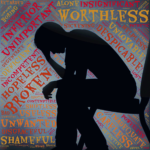 Suicide is an uncomfortable subject and one we do not talk about frequently. According to the American Foundation for Suicide Prevention, suicide is the 10th leading cause of death in the United States. It is the second leading cause of death for individuals ages 10-34. September is Suicide Prevention Awareness Month. It is a time to draw attention to this problem and also to advocate for prevention.
Suicide is an uncomfortable subject and one we do not talk about frequently. According to the American Foundation for Suicide Prevention, suicide is the 10th leading cause of death in the United States. It is the second leading cause of death for individuals ages 10-34. September is Suicide Prevention Awareness Month. It is a time to draw attention to this problem and also to advocate for prevention.
The National Institute of Mental Health reported 9.8 million adults had serious thoughts of dying by suicide, 2.8 million adults made a suicide plan, and 1.3 million adults attempted suicide in 2017. Losing just one person to suicide, is one too many! Suicide is one of the leading causes of preventable deaths in our nation.
Everyone’s story and struggles are different. There is no single cause for suicide; but, typically extreme stress and/or health issues can cause a person to experience feelings of hopelessness and despair. Often times it is when a person feels like there is no way out, like they have no other options, that suicide is contemplated.
Talking about suicide can be scary, but it is an important step in helping to prevent death by suicide. We can’t see what a person is feeling on the inside so the only way we can find out is to ask. The National Alliance on Mental Illness identifies the following warning signs for individuals thinking about suicide:
- Comments and thoughts about suicide
- Increased alcohol and drug use
- Aggressive behavior
- Withdrawal from friends, family, and community
- Dramatic mood swings
- Impulsive or reckless behavior
- Collecting and saving pills or buying a weapon
- Giving away possessions
- Tying up loose ends, like organizing personal papers or paying off debts
- Saying goodbye to friends and family
It is my belief that if the rate of suicide is going to decrease, then we as a society, need to change the way we view, perceive, approach, and talk about mental health issues. We need to care enough to intervene when we see someone struggling. We need to spread the message that “It’s O.K. to not be O.K.” and that help is available. We need to remember that suicide is preventable but it takes communities, friends, families, and professionals working together to provide hope. We need to share resources and let people know recovery is possible.
If you or someone you know is in crisis, call the toll-free National Suicide Prevention Lifeline at 1-800-273-8255 (TALK) or text the Crisis Text Line by texting TALK to 741741. Both hotlines are available 24 hours a day, 7 days a week and all calls/texts are confidential. Please make a commitment today to join me in raising awareness and preventing suicides. You never know when you may help to save a life. If you would like to learn more about helping someone with a mental health challenge or someone in a mental health crisis, look for a Mental Health First Aid Course near you. This course is designed to give the lay-person tools and knowledge to assist an individual in need.

